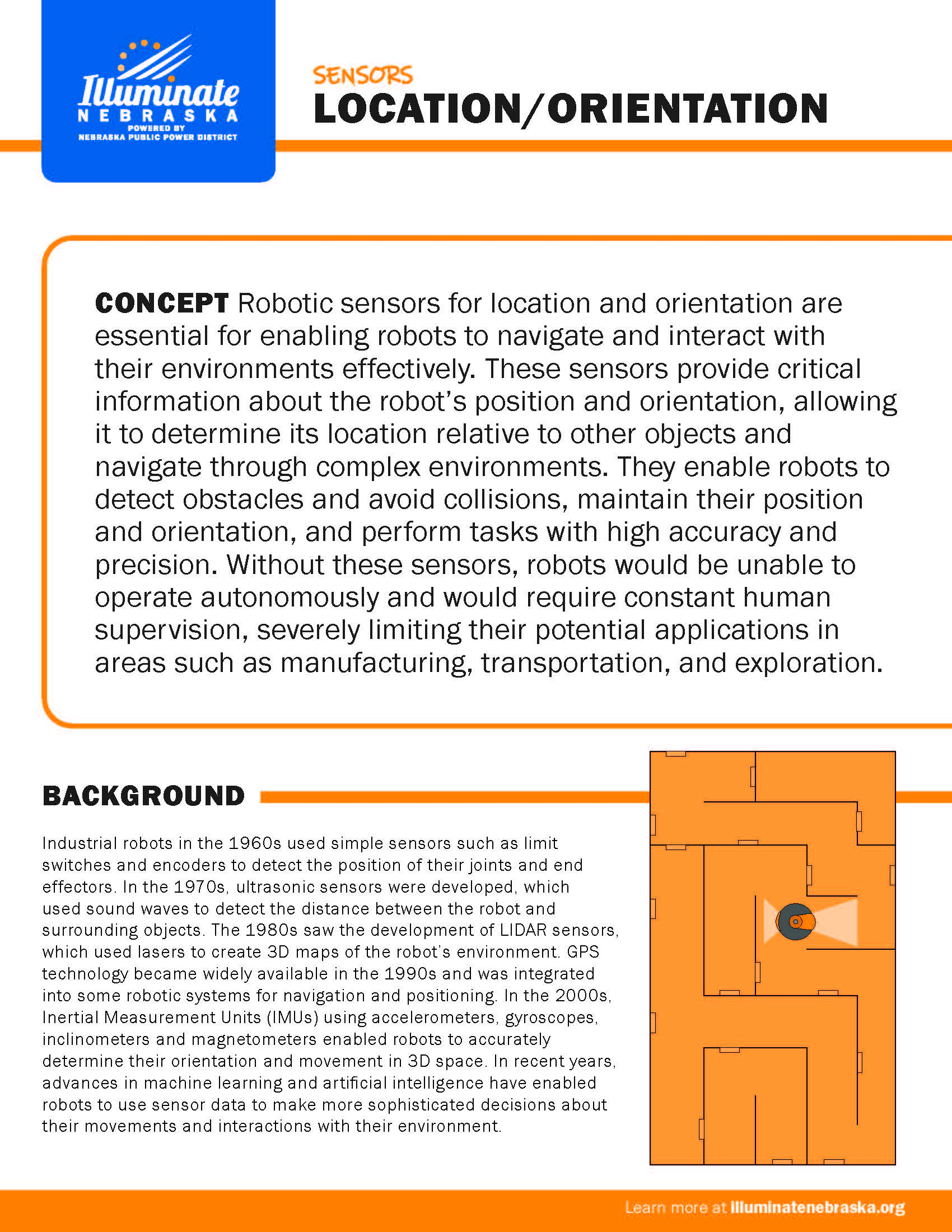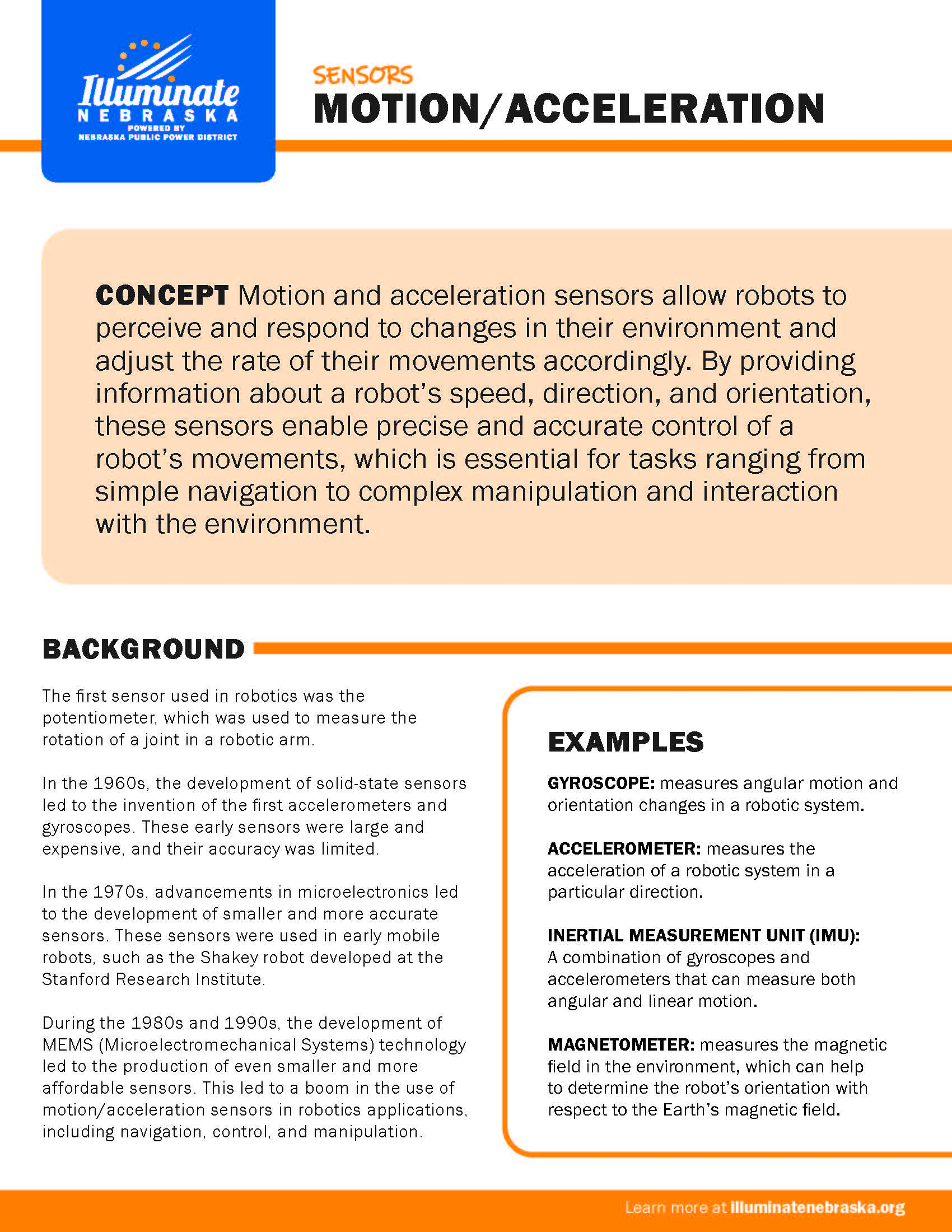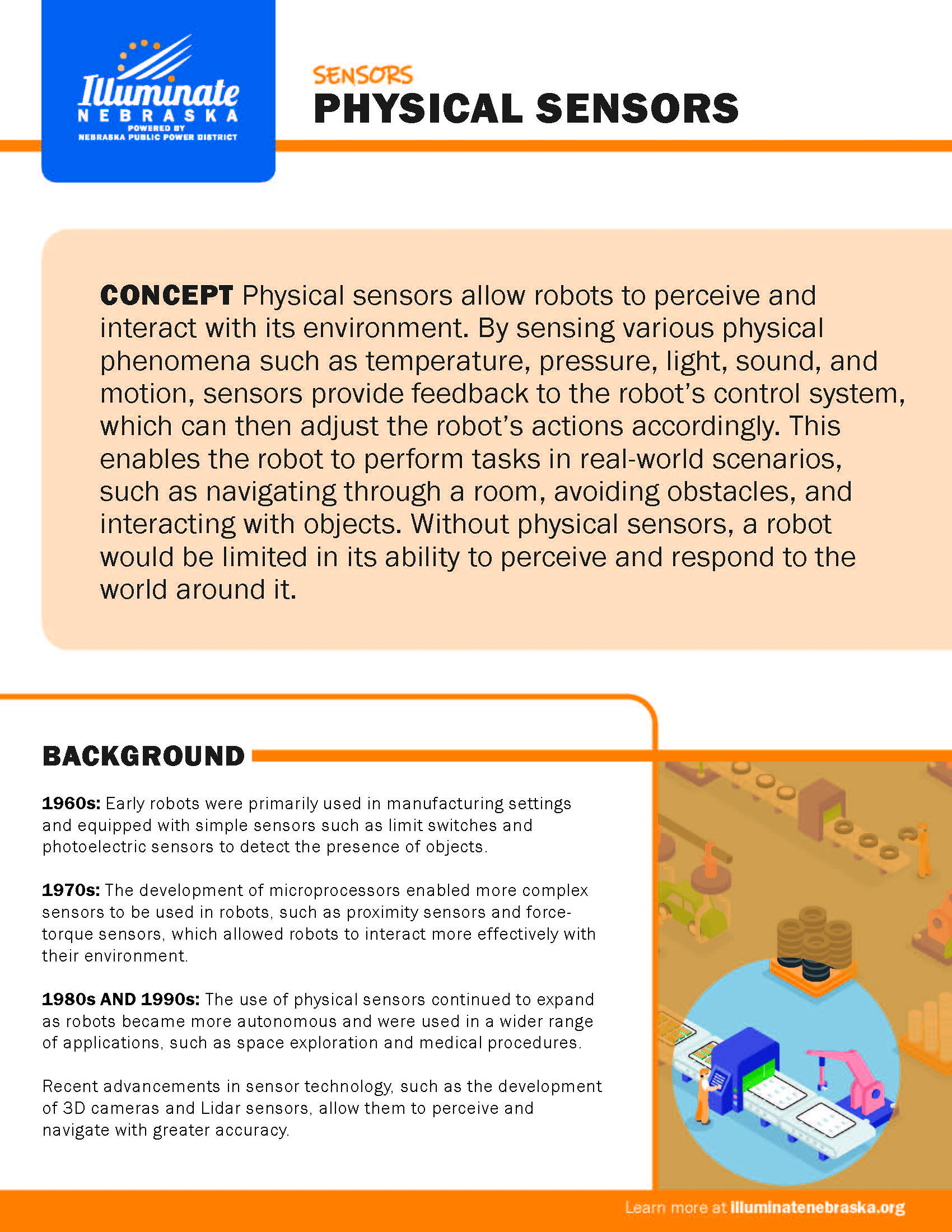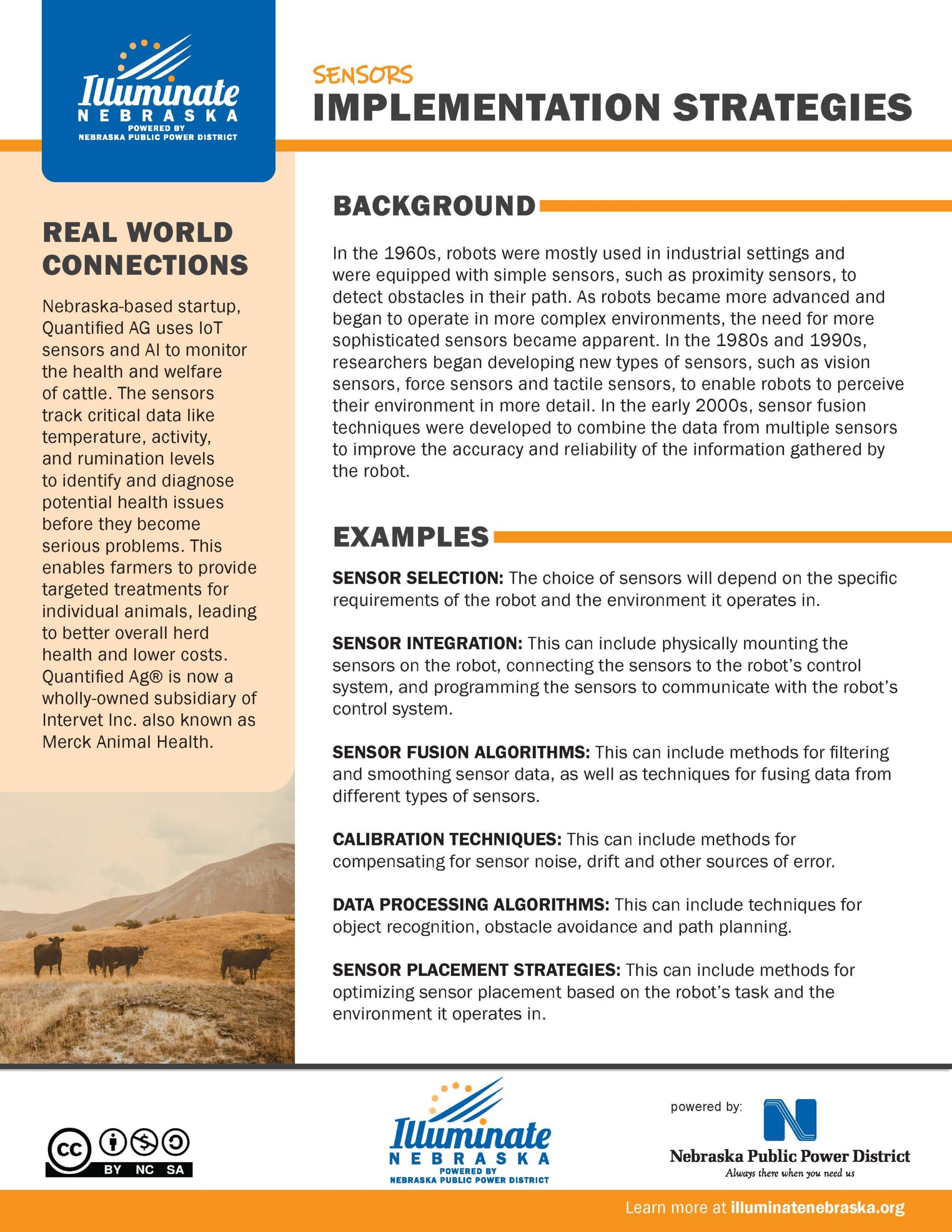Types of Sensors
Robots were invented to make human lives easier. Robots help us by doing many different tasks, using sensors to replace human senses.
Location | Orientation
Robotic sensors for location and orientation are essential for enabling robots to navigate and interact with their environments effectively. These sensors provide critical information about the robot’s position and orientation, allowing it to determine its location relative to other objects and navigate through complex environments.
Motion | Acceleration
Motion and acceleration sensors allow robots to perceive and respond to changes in their environment and adjust the rate of their movements accordingly. By providing information about a robot’s speed, direction, and orientation, these sensors enable precise and accurate control of a robot’s movements, which is essential for tasks ranging from simple navigation to complex manipulation and interaction with the environment.
Physical Sensors
Physical sensors allow robots to perceive and interact with its environment. By sensing various physical phenomena such as temperature, pressure, light, sound, and motion, sensors provide feedback to the robot’s control system, which can then adjust the robot’s actions accordingly.
Implementation Strategies
In the 1960s, robots were mostly used in industrial settings and were equipped with simple sensors, such as proximity sensors, to detect obstacles in their path. As robots became more advanced and began to operate in more complex environments, the need for more sophisticated sensors became apparent.





